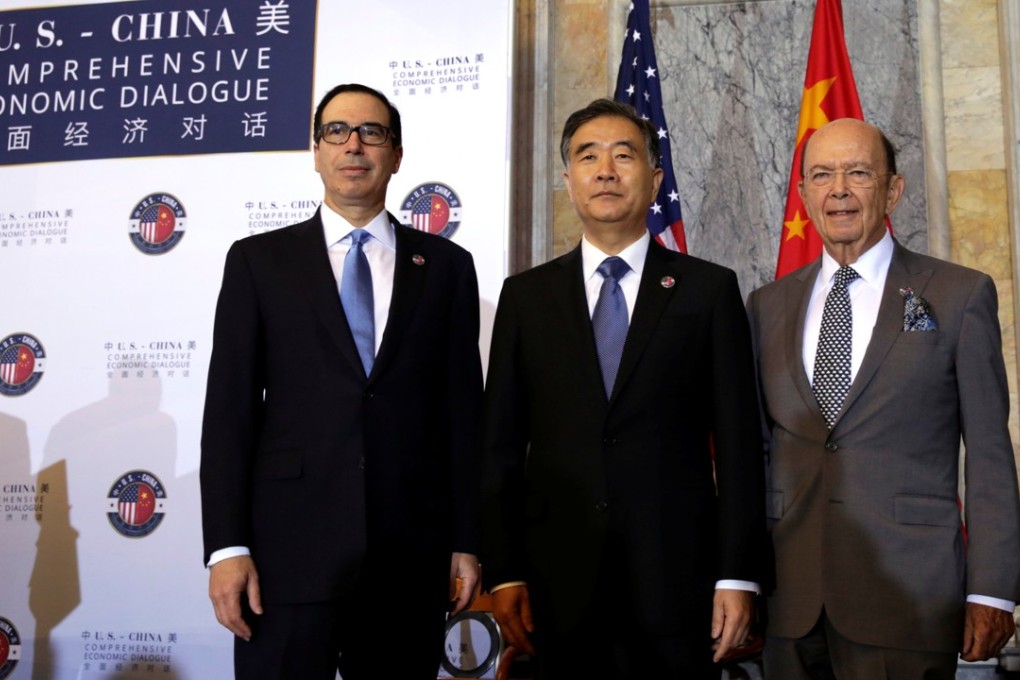US and China talks in Washington end in deadlock as threat of trade war rises
The first Comprehensive Economic Dialogue came amid the White House’s threat to impose punishing tariffs on Chinese steel and aluminium

China and the US failed to reach an agreement on trade at the first Comprehensive Economic Dialogue in Washington on Wednesday, casting a shadow over their trade relations amid White House’s threats to impose steel and aluminium tariffs on Beijing.
Both countries cancelled their press conferences earlier in the day, providing no explanation for the moves but indicating it was unlikely any concrete results had come out of the talks. The US side cancelled its press conference first, the Chinese side followed.
The US delegation released a short statement late on Wednesday. It said: “China acknowledged our shared objective to reduce the trade deficit which both sides will work cooperatively to achieve.
“The principles of balance, fairness, and reciprocity on matters of trade will continue to guide the American position so we can give American workers and businesses an opportunity to compete on a level playing field,” the statement said. “We look to achieving the important goals set forth by President Trump this past April in Mar-a-Lago.”
A statement issued by the Chinese delegation only said both sides would promote cooperation in the manufacturing sector, improve communication about macro economic policies, as well as cooperating in the financial sector and its supervision.